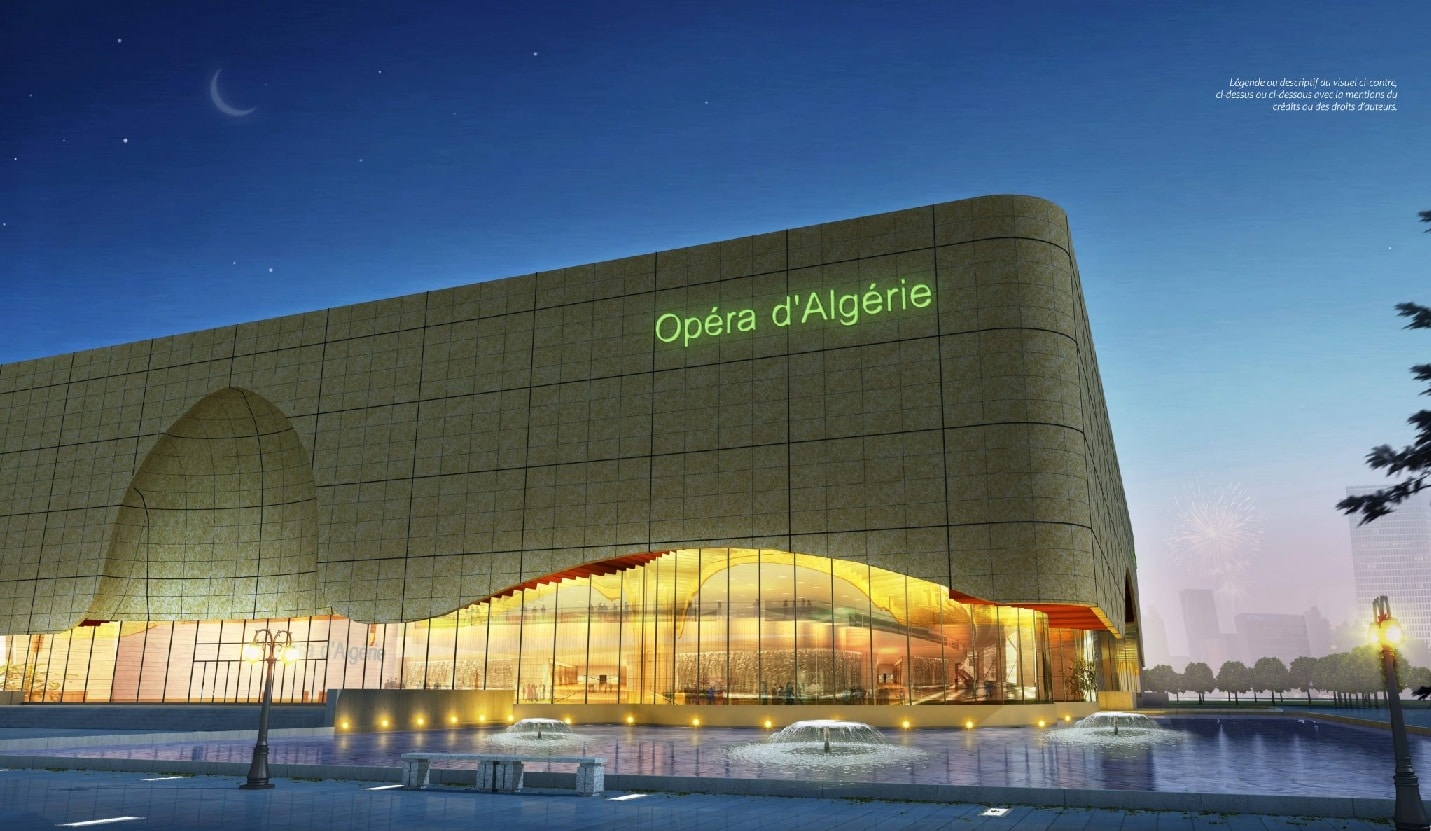Algeria gets an opera house (but no opera)
mainBuilt as a gift from China, it will stage orchestral and traditional dance performances.
But no opera. Not even L’Italiana in Algeri.
The state religion is Islam.


Built as a gift from China, it will stage orchestral and traditional dance performances.
But no opera. Not even L’Italiana in Algeri.
The state religion is Islam.

Born in October 1921 and active in every…

Word from the West Coast: Important Concert Update:…

The pre-college tutors are paid much less the…

In April 1983, the classical music establishment was…

Session expired
Please log in again. The login page will open in a new tab. After logging in you can close it and return to this page.
Comments